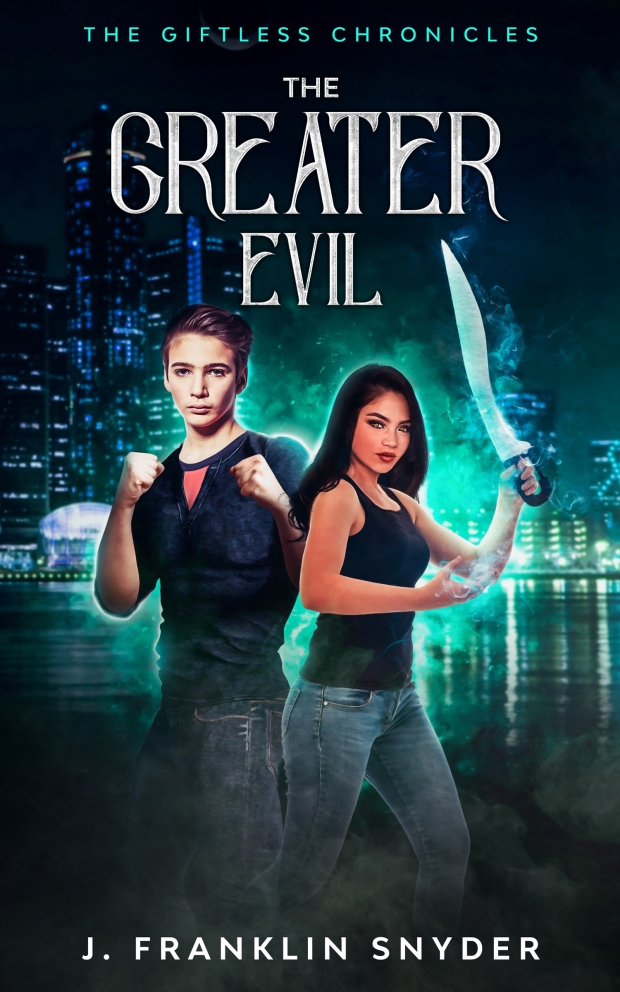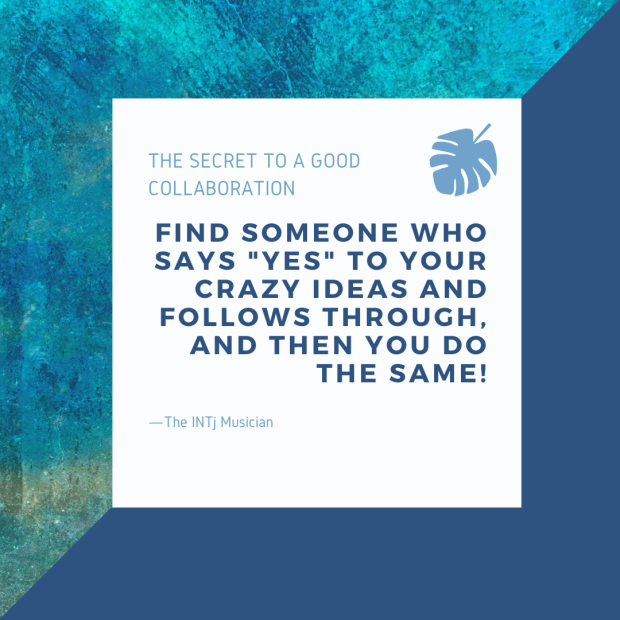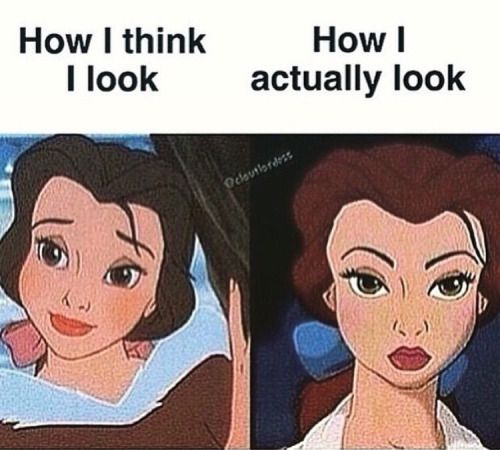CHAPTER ONE
A New Day
Sparring in the bright morning sun, John smiled as he ducked under Mark’s huge fist and countered with his own quick jab to Mark’s midsection. Under Mark’s tutelage, he’d grown so much as a fighter. His kicks were snappier, his throws crisper, and his aim truer. Even his sword and dagger skills were cleaner.
Mark easily sidestepped the punch, barely breathing hard. “Very good. You anticipated my punch. Make sure you—”
John grunted in frustration as he shuffled in and threw a roundhouse kick to the side of Mark’s head. His foot caught Mark’s jaw, staggering him. John followed with a second roundhouse kick to Mark’s ribs. This time, however, Mark was ready. He stepped in, grabbed John’s kick out of the air and dropped his other elbow on John’s thigh. He finished with a sweep of John’s other leg that he was using for balance. Pain tore through John’s leg, and he fell onto the hard earth with a thud.
“I was going to say,” Mark continued, a white smile stretched across his dark face, “make sure you don’t leave yourself open when you attack.”
Breathing heavily, John studied the clear, blue sky as he waited for the pain in his leg to dissipate. “Well, if I’d been faster, you wouldn’t have been able to block it.”
Mark offered John a hand and pulled him up. “It’s not speed that’s the issue. You rely too much on your kicks. They’re beautiful kicks mind you, but you need to keep your enemy guessing.’
John rubbed his leg where Mark had charley-horsed him. “I still got you with that high kick, though!”
Mark laughed and slapped John’s back a little too hard. “True enough! True enough! C’mon, let’s go inside. I hear Corinne and Madelyn are returning from camp at any moment.”
John mopped his sweaty, chestnut hair to the side with a dirty hand. “You should have told me. I’m filthy!”
Mark narrowed his deep brown eyes mischievously as they reached the door-wall. He grabbed the handle and slid the door open along its track. “Why would you care?”
John rolled his eyes and stepped into the cool air conditioning of the Durhams’ two-story house. It was August, and even though John had spent most of his summer break outside, as his reddish-brown tan would attest, he still preferred the dry heat to the stuffy, Michigan summers. “Thanks for the lesson, Mark. I’ll keep it in mind.”
With a contented sigh, Mark nodded and sat down at the table on the inside of the door-wall. “I do love me some air-conditioning, though!”
John smiled. “Don’t you always say that North Carolina summers are twice as humid?”
“It doesn’t mean that I can’t appreciate a nice, climate-controlled room when I sit in it. I imagine this is what heaven feels like.”
“Uh huh, sure,” John said, playfully. He stood and listened for a moment. “Where are the twins?”
The clang of pots and pans in the kitchen stilled for a moment, and Diana Durham spoke up. “Daniel and Cynthia are visiting their grandparents in North Carolina. We thought we’d try to get a little peace and quiet before the baby comes.”
John nodded. “Makes sense. I’m sure they’re having fun!” He paused, then added, “Hey, when’s lunch?”
Diana poked her head around the corner into the dining room. Her strong eyebrows added an intensity to her brown eyes. Her long maternity dress accentuated her height. “You know, it would go a lot faster if you two helped.”
Mark rose from his chair, and his heavily muscled arm saluted. “Yes, ma’am.” He chuckled. “What do you need us to do?”
She laughed and waved them in. “Come on into the kitchen, and I’ll show you guys. Make sure you wash up.”
***
They were almost finished when someone creaked open the front screen door. John, who had been busily cutting carrots for the salad, craned his head to see who it was.
He almost gasped as Corinne walked in, a green suitcase on rollers trailing her. Last time he’d seen her, she’d worn a t-shirt and jeans and no makeup. Now, her long, black hair glistened under the light, and a knee-length, black-and-white checkered sun dress adorned her creamy skin. Apparently, John wasn’t the only one who’d been kissed by the sun this summer. A simple gold cross, a gift from her late Uncle Sam, rested on a necklace beneath her chin.
There was something else, too, something John couldn’t identify. Corinne’s every movement flowed with a gracefulness that she hadn’t had when he’d first known her. Gracefulness mixed with strength, that’s what it was.
Diana ran to her daughter as quickly as her very pregnant body would allow. “Corinne, you’re home!” They hugged each other, and John glimpsed some of the family resemblance that he hadn’t before. Though Corinne was almost a head shorter than her mother, and would probably always be, they had the same dark eyebrows and round face. She smiled lovingly at her daughter. “You’ve grown so much!”
Corinne’s gold-hazel eyes flashed quizzically as they released the hug. “Mom, I’ve grown maybe half an inch!”
“Well, even so,” Diana said, one hand on her own stomach and the other touching Corinne’s face, “you’re just so beautiful.”
The front door opened again, and Grandma Franklin slipped in. Whereas Diana was tall and thin, she was short, and her brown and gray hair framed her round face.
“Hi, mom,” Diana said, and hugged her tightly. “How’s Nanna?” she said, referring to her father’s mother who’d had a medical emergency earlier that summer.
Grandma Franklin smiled and craned her neck up at her daughter. “You know your grandmother. She’s too ornery to die.”
Diana laughed. “Dying wouldn’t be ‘proper.’”
Grandma Franklin suddenly grew serious. “Can we talk? It’s about Corinne.”
Corinne stiffened slightly, and her eyebrows arched at the sides.
Diana lightly bowed her head. “Sure. Let’s go outside. Corinne, why don’t you go help John and Mark finish preparing lunch.”
As they made their way outside, Corinne glided into the kitchen. “Cousin Mark!” she said, and floated over to where he was pulling plates out of the cupboard.
Mark set the plates down on the counter and turned. His body dwarfed hers as they hugged.
“She’s right, you know,” Mark said.
“About what?” Corinne asked.
“You seem so much taller, for some reason.”
Corinne shrugged. “Don’t ask me. I’m wearing flats.” She stepped over to where John was putting the diced carrots into salad bowls.
She smiled and brushed a strand of beautiful dark hair behind her right ear. “Hi, John.”
John’s pulse quickened. “Oh, uh, hi, Corinne. Where’s Madelyn?” Her crestfallen face told him that he’d said something wrong.
Her face quickly froze to a neutral expression, however. “We dropped her off at her great aunt’s house. She hasn’t been feeling well.”
John fished for something to say. “Um, what are Mrs. Franklin and your mom talking about?”
Corinne picked up the salad bowls and turned so that John couldn’t see her face. “I…kinda got in trouble at camp. We can talk about it later.”
Mark picked up his plates. “Corinne, would you mind getting out the forks and knives?”
She nodded and pulled open the cutlery drawer. “Sure. Hey, uh, is dad here?
Mark pursed his thick lips. “He’s been in his room all day.”
Corinne’s eyebrows furrowed as she counted the utensils she needed. “Does he know that I’m coming home today?”
“Yes, your mom told him. He said he wants to make sure his sword and other weapons are sharp.”
“So, he’s not coming down.” It wasn’t a question.
Mark shook his head. “No, sorry.”
The forks and knives in Corinne’s hands trembled for a moment, then stilled. “Oh, okay.” She made a beeline to the dining room and placed the forks and knives on the sides of each plate.
***
The front screen door swooshed open again, but only Diana stepped through it. “Corinne, could I talk with you for a second?” It wasn’t a question, either. She pointed to the living room.
John glanced at Corinne, whose face set in grim determination.
“Yes, mom,” she said, and walked like she was marching to her own execution.
“Corinne,” Diana said in a voice meant to be quiet but John overheard anyway, “Your grandmother told me earlier this summer that you’d ran off on a Hunt. Now I learn that you also got a teacher in trouble!”
“Mom, let me explain!” Corinne said. “Another camper was in danger. We were the only ones who could hel—”
“Enough!” Diana exclaimed, her eyelids and eyebrows scrunched shut. She laid a hand on Corinne’s shoulder. “Corinne, you can’t keep fighting monsters like this. It’s too dangerous, and you don’t have the Gift. You’ll get hurt.”
“I know, Mom, but please listen,” Corinne said. “There were a lot of other factors.”
Diana shook her head. “No, no. You’re grounded. You can’t leave the house for any reason!”
Corinne breathed in deeply. “Okay. May I at least go with you to pick up Aunt Eliza from the train station tomorrow?”
Diana paused for a moment. “Yes, but I’m not the one going.” She walked into the dining room.
“John?” she called.
John was depositing the salad bowls next to the plates on the table. “Yes?” He acted like he hadn’t heard the recent exchange.
“When you and your father pick up my sister tomorrow, would you take Corinne with you?”
John glanced at Corinne. Her hazel eyes pleaded with him.
“I don’t see why it would be a problem,” he said finally.
“Thanks,” Diana said.
CHAPTER TWO
Aunt Eliza
The Blackstone’s light blue SUV purred quietly as John nervously steered it down the road. The sun, golden in the west, momentarily blinded him, and he flipped down the visor.
His father, Anthony, white-knuckled a handle attached to the ceiling of the vehicle. “Easy, John. Please take this turn more slowly than the last one.”
“I will, Dad,” John said. “Sheesh. Take it easy. You’re stressing me out!” He slowed to a complete stop and then waited an absurdly long amount of time before turning down the road toward the Durhams’ house.
Anthony’s smile lit up his graying hair and eyebrows. “Sorry, son. I guess I have a hard time letting go.”
“I don’t understand how you can run an emergency room and yet get so worried about my driving.”
“It’s different. They’re putting their lives in my capable hands. I’m putting my life in yours.”
John gave his dad a side-long glance and grinned. “Nice.”
“I picked the wrong time to quit drinking,” Anthony muttered jokingly.
“What was that?”
“Oh, nothing, Son.”
John’s father had avoided alcohol for almost eight months, and had been going to a support group for nearly as long. John and his father had finally reached the stage where they could joke about it, for which John was grateful.
Anthony cleared his throat. “So, I hear that Corinne and Madelyn are back.”
“Yeah, they got back yesterday. I saw Corinne last night,” John said. “She’s changed a lot.”
“How so?”
“Well, she seems more comfortable but also more serious, older somehow.”
“Corinne was always an old soul trapped in a young body.”
“I know, but…I don’t know…we’ll be taking her to pick up Aunt Eliza. You’ll see what I mean.”
Anthony squinted mischievously at John. “Interesting.”
“What?”
His father never answered, and John rolled his eyes. As they pulled in to the Durhams’ driveway, John saw a pair of jean-covered legs sticking out from underneath a beige car.
John stared quizzically at his father as they exited the SUV.
“Corinne?” He asked.
Corinne rolled out from under the car. Her black athletic tank top matched her hair and displayed her toned arms. Most of her hair was pinned in a bun, but several strands clung to her neck. Her left hand unconsciously stroked some strands downward in an attempt to cover a long scar etched down the side of her face. She clicked off the flashlight in her right hand.
“Hey, John, how are you?” She said as she stood up and dusted the dirt off her pants. Grease smudged her forehead.
“When did you start working on cars?” He asked.
Corinne smiled. “Remember when I said that I got in trouble at camp? Well, let’s just say that I got to spend a lot of time working maintenance with my grandfather.”
John couldn’t find words to say. He hated that. Finally, he said, “Well, that’s cool.”
Corinne turned to Anthony. “Hey, Dr. Blackstone. How’s your summer been going?”
Anthony, who’d been watching his son with a bemused expression, arched an eyebrow. “It’s been going well. The hospital has kept me pretty busy. Are you ready to get going?”
Corinne nodded. “Yeah, of course. Let me freshen up for a sec and grab something.” She sprinted inside the house.
At that moment, Diana opened the screen door and stepped onto the porch. “Dr. Blackstone, It’s good to see you.”
His gray head bowed slightly. “Mrs. Durham. And how is the pregnancy going?”
Diana walked over to the porch swing and sat down. “About as well as could be expected. Thank you for the gynecologist you recommended. She’s been amazing.”
Anthony smiled. “My pleasure. I’ve been very impressed with Dr. O’Connor’s work.”
“We Hunting families usually hire the gynecologist from Advanced Power. She does a great job, but it’s nice to have someone closer to home.”
Anthony’s brows furrowed again. “Actually, I have a favor to ask of you. Would it be possible for me to talk to her and ask her some questions about blood work and the like?”
Diana’s lower lip puckered. “Why?”
“I’ve been doing a lot of reading and research on genetics over the past few months, and I want to figure some things out.”
She shrugged. “Okay, I’ll let her know.”
The door opened again, and Corinne walked out. Her hair had been tightened in the bun, but more strands covered her scar. The grease on her forehead had also disappeared, and she clutched a long, thin wooden case with a strap attached.
Anthony nodded. “Thanks. Well, let’s get going. Tell Christian that I said hi.”
She smiled sadly. “I’ll let him know. I’d hoped that he would come down.”
As Corinne approached John, the calming smell of vanilla wafted toward him. He raised an eyebrow. “What’s that?” He said, pointing to Corinne’s case.
Corinne slipped the strap over her shoulder. “Just a precaution. Can’t be too careful these days.”
***
Corinne sat in the passenger’s seat and cringed as John’s foot slammed the brakes at the stoplight.
“So,” she said, “how long have you had your permit?”
John looked over at her. “A few weeks. Why?”
Corinne stared ahead. “Oh, you know…”
From the back seat, Anthony stuck his head between them. “John, remember to gently apply the brakes.”
John’s face flushed, even through his tan. He decided to change the subject.
“So, uh, Corinne, why was your grandma upset with you?”
Corinne closed her eyes. “If I tell you guys, you have to promise not to tell anyone, even my parents.”
John leaned back in the driver’s seat. “Really? Why?”
“If the truth got out, Kerrigan could use the information against us. Plus, Madelyn would be embarrassed.”
John sniffed. Assessor Janet Kerrigan had had it in for the Durham family ever since they’d kicked her out of her Assessment. She’d denied them assistance when Corinne’s father and her Uncle Sam were captured, and Uncle Sam had died because of it. “Okay. I promise.”
She turned around. “And you too, Dr. Blackstone.”
Anthony nodded. “Of course.”
“Okay, then. Madelyn ran away from the camp to find her mother. She got herself captured.”
John pulled a hand from the steering wheel and clamped it to his mouth. “That’s so dangerous! Her mom’s a vampire.”
Corinne smiled faintly. “Yeah, it was really foolish. She almost got killed.”
Anthony spoke up from the back seat. “Did you find her mother?”
“No. The monster we found was…not what we were expecting. She was a monster who preyed on bad children.”
“A bogeyman?” John asked.
“A bogeywoman,” Corinne corrected with a grin. “Anyway, we couldn’t tell anyone because Kerrigan was assessing the camp at the time.” Corinne’s eyes narrowed. “Even her daughter was there causing problems.”
“I see,” John said. “How did you rescue her?”
Corinne sat silently for a moment. “Aleksis and I tracked Madelyn down and got her back. It was really dangerous. The monster was just crazy powerful, and then Emilee and Donovan attacked.”
Anthony whistled. “It sounds like you had your hands full!”
“Yeah, but Aleksis and I had to take the fall for it.”
John frowned. “Who’s Aleksis?”
Corinne smiled and absently patted the box on her lap. “A fellow Hunter, but from Europe. It was pretty cool to meet someone from there.”
John smiled at Corinne. “I’d like to meet her someday.”
They rolled into the train station.
“C’mon, your aunt is due any minute,” John said, parking the SUV.
Corinne unlatched the door and all three of them walked toward the train station. It was a large, one-story structure. Light and dark red bricks formed circular patterns around one another up the wall. Her fingers rubbed the rough brick before they stepped inside.
As the last rays of red light shown through the skylight, a handful of people milled around the station, mostly staring at their phones. Several of them lazily glanced up at Corinne, John, and Anthony, then returned to studying their electronic devices. One of them, a tall, young man with pale skin dressed in a crisp, black suit watched a little longer than the others. He held a wooden cane with an ornate handle, and his brown eyes tracked them from across the room. Once they made contact with Corinne’s, he smiled but quickly stared back at the phone in his hand.
The hairs on the back of Corinne’s neck raised, and she caressed the smooth wood of her case that she’d strapped to her back. Ever since last year when vampires and a sorceress named Emilee had attacked her family, she couldn’t shake the fear that something was hunting them. She was probably being paranoid.
“What time was your aunt coming in, again?” John said. He tapped his foot and stared at the doors facing the train tracks on the wall opposite the entrance.
“She should be arriving…now,” Corinne said. As if in answer to her statement, the tracks rumbled expectantly. The train whistle blew, and the silver train rolled into the station.
She smiled as her aunt stepped off the train. Like Corinne’s grandmother and herself, Aunt Eliza was a short woman with dark hair and a round face. Unlike them, a crutch with one of those cuffs around her right arm held her upright. Corinne had once asked her mother why Aunt Eliza used it, but her mom had clammed up.
“Aunt Eliza!” Corinne exclaimed as she jogged over.
Eliza hugged her tightly. “You’ve grown so much since I last saw you. You’re almost as tall as me!”
Corinne peered upward at Eliza’s blue eyes. “Why does everyone keep saying that? I’m only five feet tall.”
Eliza beamed. “It’s just been so long since I’ve seen you.” She put her left hand down to her waist. “Last time I saw you, you were only this tall!” She hugged Corinne again.
Suddenly, an average-sized man slipped beside Eliza. His deep brown eyes, set in a deeply tan face, were perched above his hawkish nose. He warily searched the area.
“We should keep moving,” He whispered in a high tenor voice loud enough for Corinne to hear. “This station isn’t secure.”
“Yes, of course,” Eliza said. “Corinne, this is Assessor Steven Avalos. Assessor Avalos, this is my niece, Corinne.
He clasped her small hand in his larger one. “It is nice to meet you,” he said.
She shook his hand, then waved over to where John and Anthony were sitting. The Blackstones stood and walked toward them. “This is John Blackstone and his father, Dr. Blackstone.”
Anthony shook their hands. “You can call me Anthony,” he drawled.
“It’s nice to meet a fellow Texan,” Avalos said.
“Likewise.”
“Okay, let’s get moving,” Avalos said and hurried them toward the door to the parking lot.
They’d almost pushed open the door when a large crack sounded, and something punched Corinne in the back. She pitched forward, face-first, onto the ground. Her sword gleamed through the shattered case.
Thanks for reading this excerpt! If you want to see more, buy my book, The Greater Evil: The Giftless Chronicles, Book 2 from Amazon today! Ebook is $3.99 and the paperback is $16.50.








